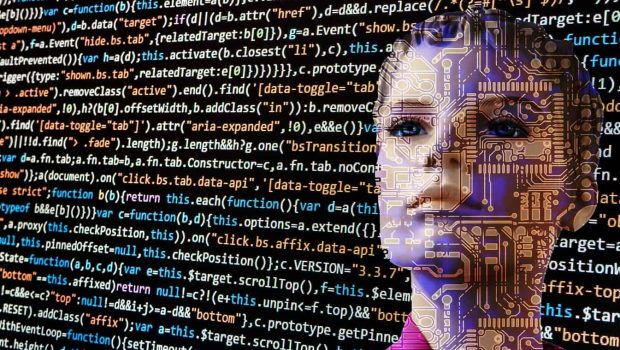How AI Helps With New Business Formation
Statista reveals that the AI implementation plans in organizations in the U.S. in 2021 show that only 33% of U.S organizations have started implementing AI in their workplace.
Many people still associate artificial intelligence with science fiction dystopias, but as artificial intelligence advances and becomes more normal in our daily lives, this perception is fading. Artificial intelligence is now a well-known term.
One example is The Really Useful Information Company (TRUiC). According to a news release, they now use AI to power up new startup registrations, domain name selection, and a range of things that traditional brainstorming used to do among humans. For example, if you want to start a new LLC in Texas to tap into the same tax incentives as Elon Musk – well, you can do it without the need to even pick up the phone. This is because TRUiC will take you through the process of reviewing the best providers, making a new logo for your business, picking an AI website builder, and picking a domain name or business idea – all driven by AI.
Suggested Video:
Before we can discuss the impact of AI in the workplace, we first need to understand exactly what artificial intelligence is:
What is AI?
Artificial intelligence (AI) is a broad term that refers to any type of computer software that performs human-like tasks such as learning, planning, and problem-solving.
While the mainstream adoption of artificial intelligence is a new occurrence, it is not a new notion. The contemporary area of artificial intelligence was founded in 1956, but major progress toward establishing an artificial intelligence system and making it a technological reality took decades of effort.
How is AI advantageous?
AI can perform jobs with significantly better precision and speed than humans, from automating various areas of the business to forecasting trends in data, revolutionizing not only what organizations and managers can do, but also how they do it. Chatbots, intelligent voice assistants, and conversational AI are revolutionizing the customer experience in healthcare, finance, retail, and travel. Meanwhile, a slew of new machine learning applications is allowing businesses to conduct in-depth analyses of critical internal data in order to revamp their operations.
Whether you are updating your business structure or busy with new business formation, incorporating AI into your daily operation will contribute to the future of your business.
AI in the workplace
Below are four of the top ways businesses are currently implementing AI in the workplace:
1. Chatbots
Chatbots are quickly gaining traction in the current digital workplace due to their capacity to decipher spoken and written communications utilizing natural-language processing. Chatbots improve client engagement, reduce mistake rates, and allow employees to respond more quickly.
Many businesses now use them to improve customer service, but they may soon become an indispensable tool for employees as well. Employees might use chatbots to manage reminders, prioritize action items, and seek assistance with routine IT chores like submitting service requests or resetting passwords.
2. AI-powered augmented reality
Augmented reality (AR) bridges the gap between the virtual and physical worlds by enhancing interactions with digital content. AR overlays text, icons, and images over the user’s vision, allowing them access to the information they need to complete a task effectively. Employees may, for example, be in a virtual meeting while zooming in on a floor plan that shows in front of them. Augmented reality could be even more potent in the workplace when paired with AI. Artificial intelligence might add a new layer to virtual and augmented, allowing designers to build more personalized experiences based on data about consumers’ interests.
3. Buildings that are more responsive and energy efficient
According to the US Department of Energy, commercial buildings waste up to 30% of the energy they consume. Many building owners have energy management programs or systems in place to track usage, but the advice they give is frequently based on historical data rather than real-time information. Energy management platforms are becoming smarter as a result of IoT sensors and AI.
For example, AI could assist building owners in predicting peak energy demand. It can detect variations in temperature and humidity as a result of factors such as weather and office density, making the environment more comfortable for everyone.
4. Advancing Innovation
In the workplace, AI technology aids in the creation of ideal conditions for the development of new products and services. Employees have more free time to interact with consumers and gather vital feedback now that AI tools have taken over the monotonous tasks. They will be able to generate more unique ideas to help the sector expand as a result of this. These changes may lead to increased job satisfaction.
Final Thought
Artificial intelligence will soon be able to do repetitive or difficult problem-solving activities. In industries, AI-enabled computers will make choices in place of humans. With AI being used for customer service and financial choices, it makes sense to incorporate it into the everyday workings of a business.








Gloss